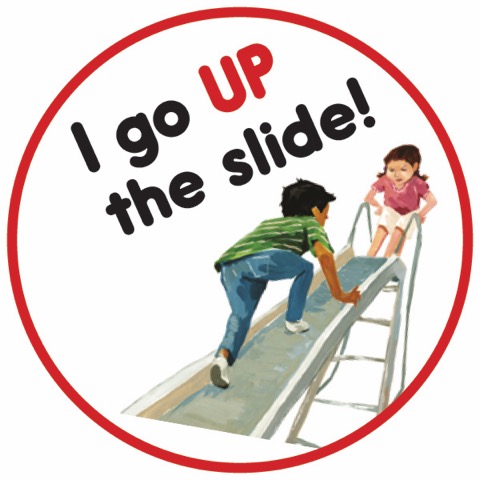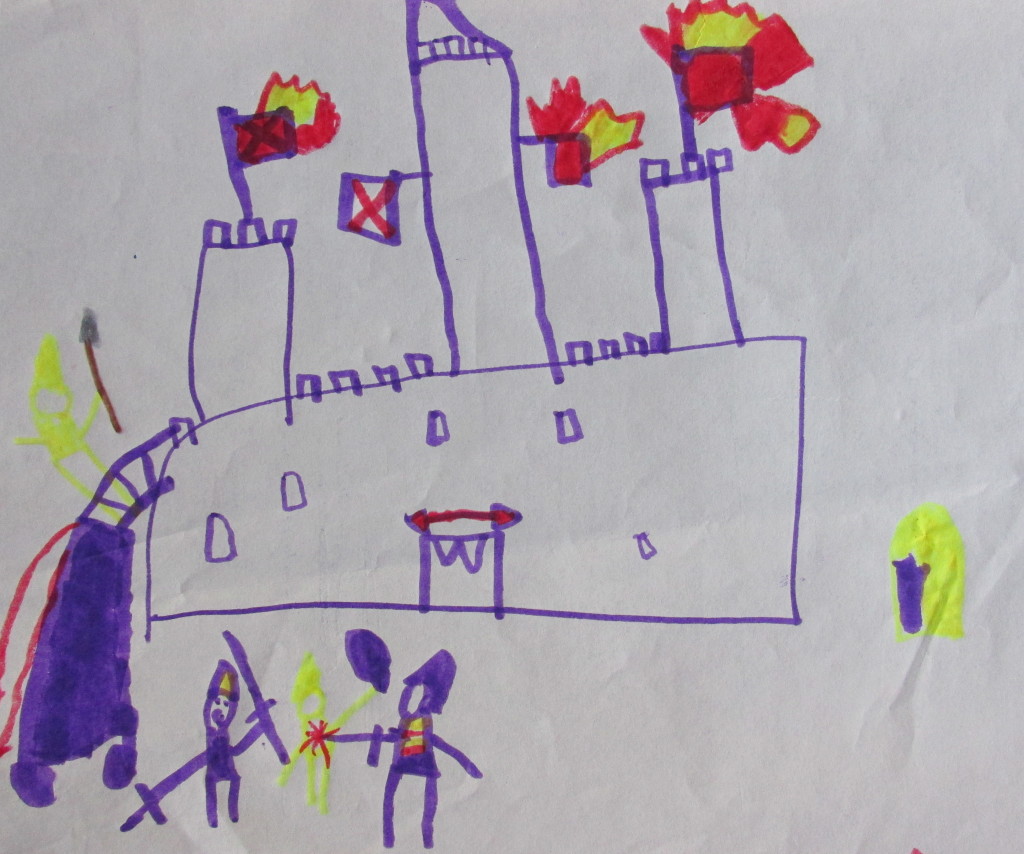A World of Books and Children
Search and enjoy 8 years of posts chock-filled with ideas from It’s OK Not to Share and beyond.
Author update: Early bird gifts extended to March 13, 2016.
A box arrived on my doorstep from Penguin Random House this week. I thought it was THE BOOK. Instead it was a batch of lovely postcards from the publisher, but this is a good sign. It means we're getting close - only 6 weeks to go!
To celebrate and thank everyone who's an early buyer of It's OK to Go Up the Slide, I've designed a special one-hour exclusive podcast for you. Just pre-order, and you can enjoy this special edition podcast as a gift.
Also, I've designed a set of inspirational quotes that you can print and post on your fridge or other spots around the house. A gift to you.
When you pre-order, you can get your copy the day it comes out - March 8, 2016 - and be among the first to dive into new content and renegade ideas such as: It's OK Not to Kiss Grandma, Safety Second, It's OK to Talk to Strangers, Recess is a Right, Reconfigure Kindergarten, Banish Calendars, Princesses are Powerful, plus a huge section on elementary school homework. Guaranteed to be a conservation starter.
How do you pre-order and claim your free gifts? Pre-order here or at your favorite neighborhood bookstore.
- Order It's OK to Go Up the Slide at your favorite bookstore.
- Send an email telling me where you bought the book to slide@heathershumaker.com
That's it!
Already pre-ordered long ago? No worries, just send an email to slide@heathershumaker.com telling me about your purchase and you can enjoy the gifts.
Enjoy! Can't wait to share the book with you.

Is it your idea to have a dancer in the family, or hers?
Karate. Ballet. Soccer. Swimming. Hockey. Art lessons. Music lessons. Theater class. Children's choir. The number of enrichment classes out there for children is mind-blowing. Chances are, if you have kids, you've signed your child up for one of these fun-filled classes. Or maybe three or four.
When it comes time to decide whether to sign up again, do some careful thought. Besides the obvious overscheduling concern, ask yourself this: is this class really for me or for my child?
Children's interests come and go. They may like to try tap dance, then give basketball a go. As a parent, it can be hard to know whether you should encourage your child to stay longer with trumpet lessons or acting class, and reap the rewards of getting better, or decide that this particular activity has run its course.
Ask yourself what prompted you to sign up your child for this activity in the first place? Was it your ideas or hers? Did it come from her personality or yours? Then re-evaluate.
It's fun to sign up. It's fun to try new things. Stopping - even a child quitting a music or sports program - can seem like failure. It can be hard to let go.
That's true even if you're a parent. Most enrichment activities create a parent culture that's comfortable to be part of. When your child plays soccer, you take on the role of a soccer mom or dad, when your child does ballet, you get used to the ritual of dance recitals and doing hair in buns (Yes, I've even had to learn to do my son's hair in a bun as a ballet mother. Not only does he dance, but he grows his hair long enough it needs to be pinned up.). Kids, too, get caught up in doing the same thing year after year.
Be sure to check-in. Childhood is about exploring and learning, so don't forget to take turns with activities from time to time. "You want to try baseball? OK, let's do that this spring. You can go back to drum lessons if you find you want to." Beware of the danger of simply adding and adding activities, or continuing something because it's become a habit.
Enrichment classes today are sometimes just for fun, but often as you get to higher levels there's a push for the child to commit to this activity to the exclusion of other interests. Travel sports teams. Extra rehearsals. Higher levels. Specialized camps just for basketball or choir. Some kids love the intense focus. But childhood is a time of discovery, not necessarily improving skills.
Remember children are just kids discovering themselves. They're not projects. They're not here to live out our dreams. They're here to find their own.
As our family moves through public school, I've heard six years' worth of teachers explain why kids don't write fiction in their class.
"Frankly, kids aren't very good at fiction. They only write about explosions, aliens and robots," one teacher told me.
One first grade teacher explained fiction wasn't part of the curriculum ("we focus on essay writing"). Others insisted that students should "write what they know, and kids only know about their own lives."
Hogwash. Or should I say Hogwarts. Kids know more about fantasy - the stuff of fiction - than most adults. A child writer can describe the intricacies of a mermaid's life or an alien who battles pirates with explosive powers better than what they had for breakfast.
With national education focus on hard-core skills like essay writing in elementary school, fiction writing is being pushed out from many children's lives.
As a writer, I know the hardest thing to teach in good writing is Voice. The structure of an essay can be taught later. We need to help our children find their unique voice, encourage their efforts, and give them ample practice. To love writing and get good at writing, a child needs to be able to express herself. Express the ideas that are bottled up inside. Often these ideas are about aliens, explosions and mermaids at first. If that's what's inside a child's soul, that's what she should write about.
Kids may not be very good at fiction writing. But they're learning.
Looking back at my own not-so-good writing as a kid, I learned a tremendous amount each step of the way:
- First grade. Expressing my ideas felt great. People liked my stories and treated me like a real author. I wrote 12 books about Leo the Lion before I could write. Adults wrote down my dictated words and helped me bind them up to look like real books.
- Second grade. I experimented with tragedy. I realized that killing all my main characters off didn't give a satisfying ending, just a sad one. Hmm... this was trickier than I thought.
- Third grade. I coped with my first rejection letter for a short story.
- Fourth grade. I wrote an overly-complicated story with unpronounceable names and realized that sometimes a simple story line can be more powerful.
My early stories were not good, but they allowed me to take the next step. What's more, I felt valued and listened to when I expressed myself through written words. If children need to express themselves with ideas about princesses living in towers or pirates who eat seaweed, then we should let them.
Young writers should write what is bursting from their souls.
Is fiction writing alive and well in your child's school? What were your favorite topics to write about as a child?


